A Suitcase with My Name on It: Visiting Auschwitz
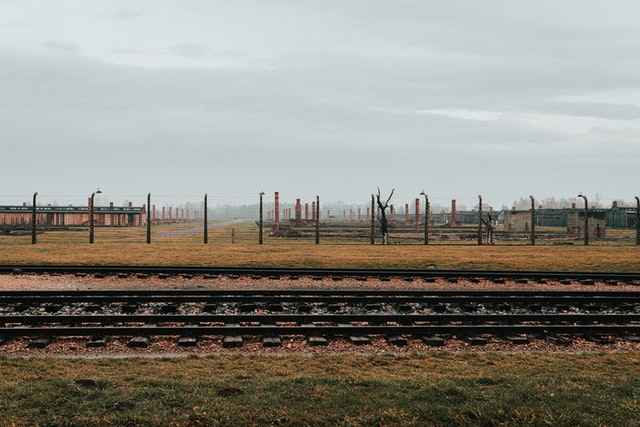
I vividly remember an elementary school activity: “What would you pack in your suitcase?” Already enthralled with travel at a young age and maybe a bit of a teacher’s pet, I sketched items inside the black outline of an old bulky suitcase that seemed crucial to international travel: a passport, food, and my beloved dolls who could comfort me through any childhood crisis.
I still feel that same fascination for suitcases, packing, and all that it symbolizes many years later. I pack my own real suitcase in a flurry of rampant excitement, or in extreme exhaustion on the way home. There’s comfort in the sight of my compact suitcase coming around the bend of the luggage carousel with its bright ribbons double-knotted around the handles and my name written all over it. It always promises adventure, and always faithfully returns to me.
I saw another suitcase with my first name on it once, which is rare as my name has not been popular since the earlier half of the 20th century. Yet there my name was, written in large white chalky letters on a faded, tattered, boxy, black suitcase with torn corners and ripped handles; a suitcase that had always faithfully returned to its owner before this.
A suitcase on a pile of similar suitcases—old, frayed, and with the names and ages of young owners who never came back. Owners who unintentionally abandoned their suitcases, believing the promises that they would return. Owners who cherished these suitcases and their hidden treasures as the last remnants of home after being forced from houses to ghettos, from ghettos to Auschwitz, and from Auschwitz to death.
Perched high upon the massive pile of similar suitcases in the glass-enclosed exhibit, I tried my hardest to keep that suitcase out of my vision.
Perched high upon the massive pile of similar suitcases in the glass-enclosed exhibit, I tried my hardest to keep that suitcase out of my vision. But in the way that humans seem to be attracted to themselves, I kept spotting it out of the corner of my eye, the proof of a horrible past in plain sight, and I felt the tears finally began to well. It broke me.
Visiting Auschwitz I and Auschwitz II-Birkenau concentration camps in southern Poland is more than just the observation of another historical WWII monument. It’s bearing witness to a national policy of death in the form of gas chambers, starvation, disease, forced labor, execution, and medical experimentation: millions of Jews, thousands of Poles, Romani, and Sinti, prisoners of war, homosexuals, and anyone else who did not fit the cookie cutter image approved by the Third Reich was killed here.
In the way that humans seem to be attracted to themselves, I kept spotting that suitcase with my name on it out of the corner of my eye, the proof of a horrible past in plain sight, and I felt the tears finally began to well.
Confronting the sensory overload of horror and pain, I, as someone who did not have family members who were victims nor ancestors of the oppressed groups, found it difficult not to put a guard up. Thoughts of:
“This was so long ago, it could never happen again…” Or
“We would never allow this- not my people, not my country, not me…” Or
“This could never happen to me…”
I noticed other people tried to shield themselves in their own ways. Some avoided the grainy black and white pictures of the political prisoners brought to the camp as its first inhabitants, whose eyes sear your soul. Some only viewed the history around them through their phone, capturing present moment and history but not looking it square in the eye. And some took selfies–their face imposed on backgrounds of cramped damp cells with dried straw as its only “comfort”, of execution walls where bullet holes and scuffs create their own star chart, and of gas chambers.
Some, like myself, put on a stone mask of strength, staring at the dark truth of the past while keeping emotions at bay. However, I can say in retrospect that it is those emotions of disgust, horror, and grief that are the most important part of a pilgrimage to Auschwitz.
I was overwhelmed by my privilege; privilege of being born in the late 20th century, privilege of nationality, privilege of ancestry, and privilege of being only a tourist to one of history’s darkest hours.
Seeing that suitcase broke my stone mask. Thoughts of another Jeannette, whose first experience of travel at a young age did not mirror the excitement of my own, but was a hurricane of anxiety, fear, and inhumanity in which the eye of the storm was an untimely death as chaos and destruction whirled. I was overwhelmed by my privilege; privilege of being born in the late 20th century, privilege of nationality, privilege of ancestry, and privilege of being only a tourist to one of history’s darkest hours.
I had studied the Holocaust throughout school, had been moved to tears by books written by survivors, written research papers on genocide and was working on a degree in international relations, but it was this moment that made it personal in a way I had not yet experienced, something I recognize as yet another privilege.
There is power in a visit to Auschwitz – the power to have an honest emotional response to murder, to react to historic hatred, and to process the truths of textbooks in a way that shakes your very core – but only if your guard is down and you are willing to let it be personal.
The emotions and memories of my trip are lingering influences to my thoughts, and I feel especially blessed and grateful every time I pack my suitcase.
Photo for A Suitcase with My Name on It: Visiting Auschwitz by Unsplash.

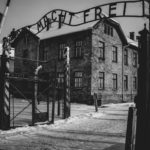
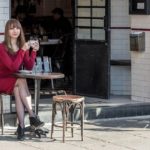


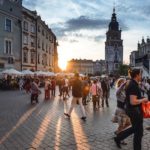
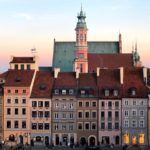
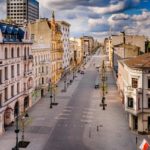

Jeanette this is beautifully written and timely. Besides living most of my life in w mass just this morning we planned a trip next fall and I said I have to visit auschwitz My husbands face cell but I remain determined to bear witness. I’m sure I had ancestors there and have read tons on the Haulacaust. Thank you for sharing your experience. Judith
This is beautifully written. I had a similar reaction on my first visit to Dachau when I was in high school. I think that if you really see what is there it can change you.
So proud of you my young friend. I remember being deeply moved at the American cemetery in Belgium when we visited you. I cannot imagine the emotions that would be evoked by a visit to a death camp.